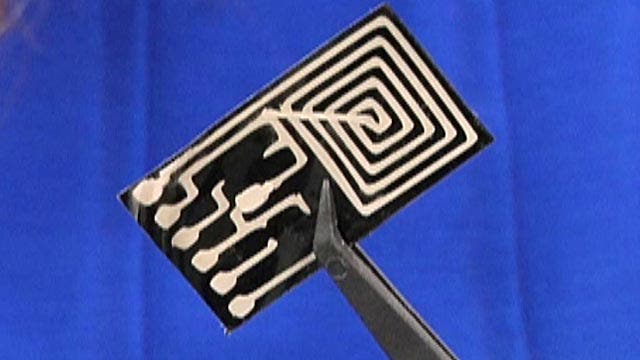Futuristic science: Electronics that melt away
Lauren Blanchard shows us technology that could make a big difference in your life
Ames, IA – Imagine tossing your old phone in the toilet, watching it dissolve and then flushing it down, instead of having it wind up in a landfill.
Scientists are working on just that: electronic devices that can be triggered to disappear when they are no longer needed.
The technology is years away, but Assistant Professor Reza Montazami and his research team in the mechanical engineering labs at Iowa State University have published a report that shows progress is being made. In the two years they've been working on the project, they have created a fully dissolvable and working antenna.
The electronics, made with special "transient materials," could have far-ranging possibilities. The military could design information-gathering gadgets that could complete their mission and dissolve without leaving a trace. Credit cards and passports could be made to dissolve if they are lost or stolen.
"You can actually send a signal to your passport via satellite that causes the passport to physically degrade, so no one can use it," Montazami said.
Charles Goldman, a surgeon at Mercy Medical Center in Des Moines, Iowa, believes transient materials could become an important tool for doctors.
He said dissolvable electronics could be used for localizing treatment and delivering vaccines inside the body. They also could eliminate extra surgeries to remove temporarily implanted devices.
"It's all very exciting. I think it's going to change the notion of taking pills and giving IV infusions in the future," Goldman said.
So far the dissolvable electronics work only in liquids, such as water, saliva and urine. But Montazami and his team are working on a way to to remotely trigger a heat reaction that would dissolve a device made of transient materials.









































